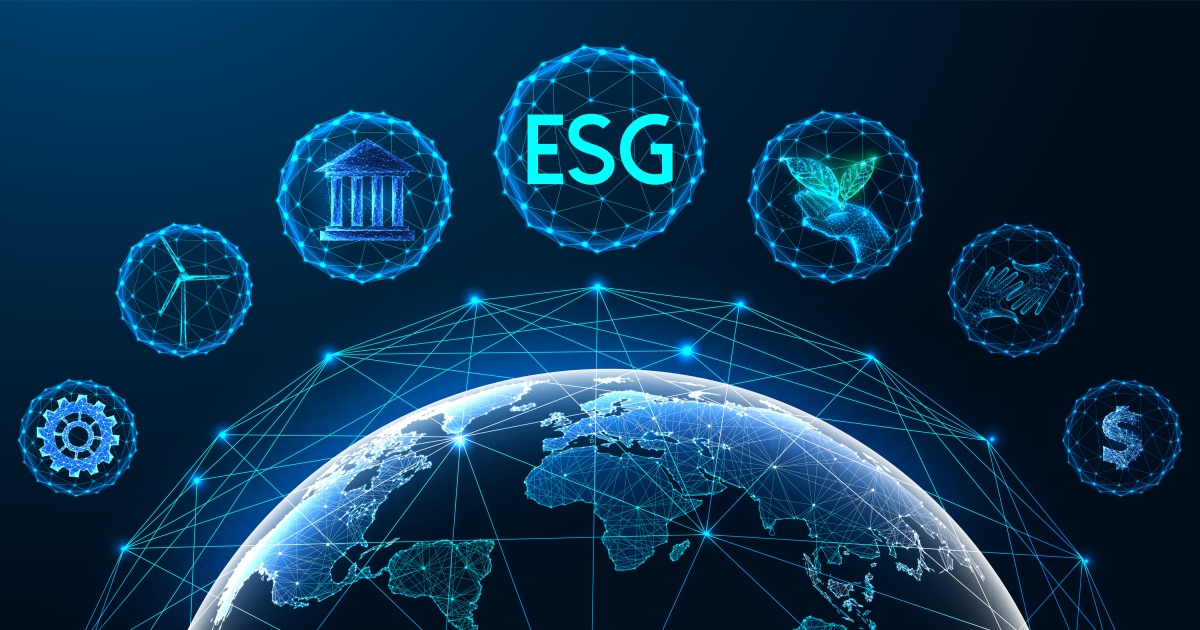
The business world is rapidly changing, as enterprises begin to align their priorities with the shifting demands of consumers and investors around the globe. One of the most prominent changes currently is the new emphasis on environmental, social, and governance (ESG) issues. Socially conscious investors and stakeholders, including employees, board members, and customers, want to know a company's stance on socioeconomic factors and its sustainability efforts before investing.
The shift in focus towards ESG issues is happening in every corner of the world, and is notably echoed by recent legislation. The US Securities and Exchange Commission is expected to finalize its first ruling on mandatory climate risk disclosures for public companies this year. The proposed rules call for increased transparency for investors, expanding the requirements for corporate disclosure of financial risk to include climate-related risks and their impact on companies’ business models and financial outlooks.
On top of this, the European Union has already signed into law its own disclosure mandate: the Corporate Sustainability Reporting Directive (CSRD), which requires an extensive set of disclosure standards in multiple environmental, social and governance domains. New regulations like these, as well as general consensus from the public, have enterprises increasingly looking for ways to improve their ESG standing.
One method for enterprises to achieve currently gaining momentum is the creation of smart buildings using innovative devices and applications, such as artificial intelligence (AI) and the internet of things (IoT). Smart buildings offer a business a wide array of ESG benefits, such as energy and water consumption optimization for environmental advantages. The same monitoring can also be applied to indoor air quality (IAQ), helping to create a safer, healthier environment for employees, benefitting a company’s social standing.
The global smart building market was valued at $80.62 billion by the end of 2022, but is expected to grow at a CAGR of 22.2 percent, with experts predicting a market value of $328.62 billion by 2029. However, these numbers may certainly increase, as enterprises quickly look to adopt technology that not only helps them transform their work environment into a smart building, but enhance their ESG standing overall.
Recently, Veea Inc., a provider of integrated smart edge connectivity, communications and computing for edge and cloud, formally announced the availability of its new Environmental, Societal and Governance as a Service (ESGaaS) offering. The offering consists of an array of solutions, powered by the Veea Edge Platform, which integrates connectivity and edge computing solutions via an open, scalable, and secure platform at the device edge.
The growing market for ESG solutions brings brand new opportunities for solution providers. Commercial real estate solutions providers and property managers today are utilizing technology to create smarter buildings, helping to achieve energy and cost efficiencies, real-time monitoring, and control, improved in-building experiences, in order to meet ESG requirements and building compliance.
“Until now, implementing such a system was complex and costly due to several challenges related to data gathering and processing,” said Allen Salmasi, CEO, Veea. “The Veea Edge Platform is designed to effectively address these challenges, aiding companies in gathering building data to drive informed operational decisions. By creating a unified, simplified and secure local network, and making it easy to onboard devices of all types is critical in enterprise and commercial real estate, with benefits that include creating excellent experiences, while lowering cost, and instantly improving ESG scores.”
The ESGaaS offering provides Veea’s proprietary vBus technology, which enables integration with numerous IoT sensors and equipment, shortening development effort and deployment time. Supported protocols include Wi-Fi, Bluetooth, Zigbee, and LoRaWAN.
Through collection of building management systems (BMS) sensor data at the edge using VeeaHubs, not only can the processing of data and decision making be expedited, but data security also improves significantly. A smart Building Management System can provide benefits including seamless integration with Building Management Systems (BMS), reduction of TCO, energy savings, and improved building and tenant and guest comfort and safety.
On top of this, Veea’s vTBA and SD-WAN solutions provide a secure, remotely monitored and controlled connection between the device edge and your cloud services.
Along with tackling some of the most prominent smart building challenges, Veaa’s ESGaaS offering also provides a variety of advantages related to ESG standards across an array of business processes, including:
- Energy: efficiency and consumption
- Gases and air quality: pollutants and air particle levels
- Access and security: camera feeds, lock status, keypad inputs for improved building security and tenant safety
- Lighting: ambient light levels, light levels by room or perimeter
- Water: leak detection and remediation
- Connectivity: Operations, tenant, and guest connectivity
- Building communications: digital signage, notifications, and alarms
- Maintenance: reduced unscheduled downtime through predictive maintenance
- High-speed network access via Wi-Fi, 4G and 5G
- Sustainability
Veea’s partners have already taken this platform to the next level, integrating analytics, dashboards, and reporting to create market-leading solutions. These solutions enable direct, secure, and scalable control of building environments, reducing energy consumption and expense, reducing carbon footprint, supporting LEED certification, ensuring a healthy environment, and supporting tangible ESG programs.
For example, the Niagara Framework is now available on the Veea Edge Platform. Tridium’s Niagara open building management framework is one of the world’s most widely-used building management software, revolutionizing the way buildings are managed. With the Veea Edge Platform, users can leverage the Niagara Framework’s features in new ways to monitor and manage their buildings, ensuring their occupants’ safety, comfort, and convenience and introduce new wireless end-points utilizing the Veea Edge Platform’s vMesh technology.
The Veea team will be at Mobile World Congress in Barcelona from February 27 – March 2, available for briefings and interviews. Please contact Tom Williams to set up a meeting to learn more, and to schedule time with one of Veea’s experts.
Edited by
Erik Linask